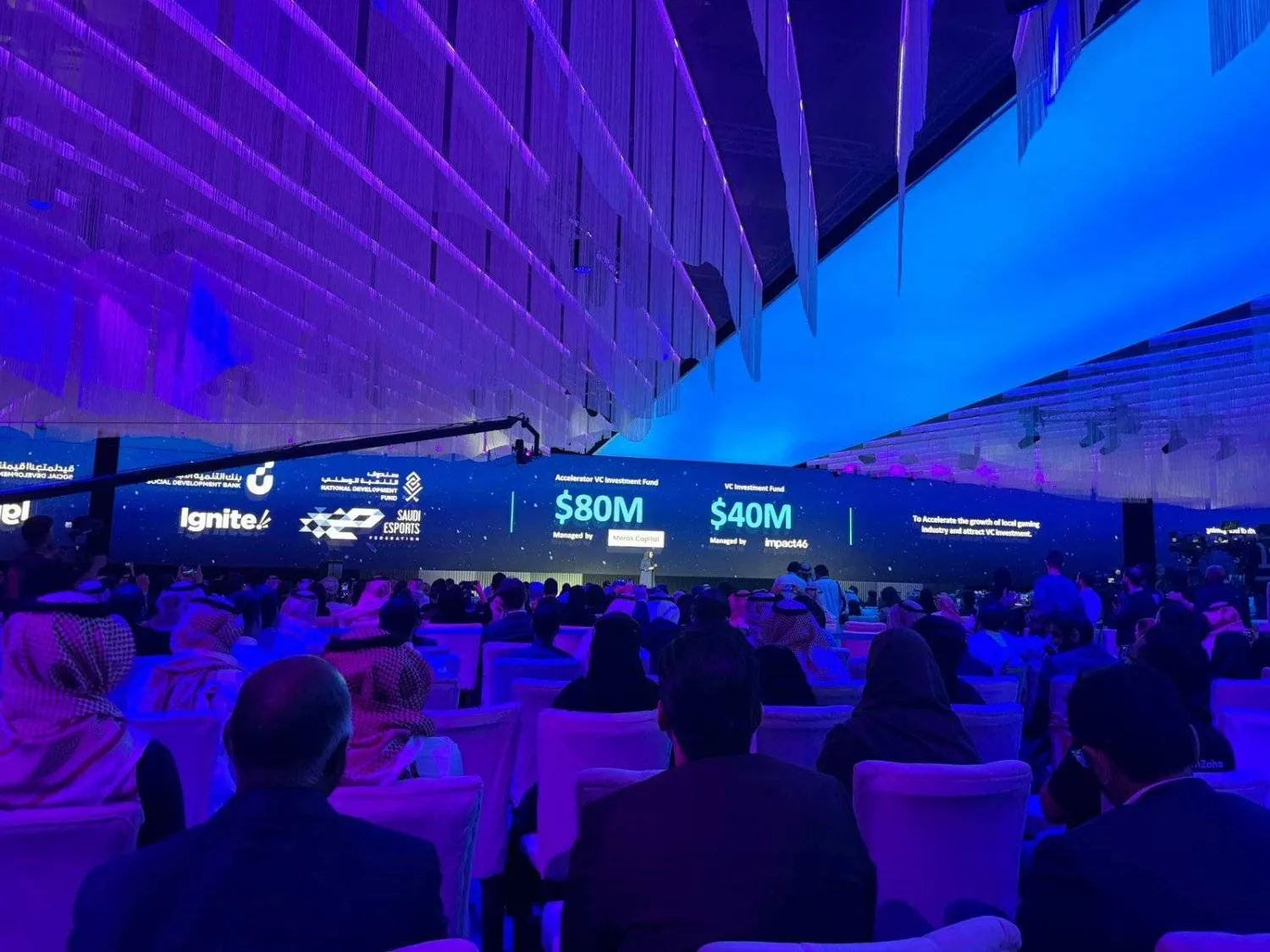Saudi Arabia further advanced its position as a regional tech and investment hub during LEAP 24, with the announcement on Tuesday of $888 million in investment funds and funding rounds backing innovation and tech entrepreneurship in the Kingdom and across the region.
On the second day of LEAP 24 in Riyadh, Investcorp launched a $500 million growth-stage fund.
Oasis Capital launched "Fund II" with a capital of $100 million.
The National Development Fund and the Social Development Bank established the $40 million Gaming and Esports Investment Fund, managed by Impact46.
Merak Capital established a fund with $80 million to support game accelerators in Saudi Arabia.
Saudi Arabia’s Takamol Holdings launched a $50 million investment arm, focused on funding early-stage tech companies.
Plug and Play launched its first fund to invest in technology startups, while X by Unifonic announced its first investment fund to support business software services for startups.
Funding rounds
As part of Saudi Arabia's position as the largest tech and digital economy in the Middle East and North Africa (MENA) region, startups raised more than $53.4 million through funding rounds during LEAP 24.
BRKZ, a Saudi-based international information technology company, raised $8 million in a Series A round.
FanZ, a Saudi AI-enabled sport tech company, announced a pre-seed funding round of $1.5 million.
Lawazem, an online Saudi B2B supplies player, announced a pre-Series A round of $8 million to expand its operations, while RemotePass, a cross-border team onboarding services company, announced a Series A funding round of $5.5 million.
Moyasar, a Saudi payment gateway, announced a Series A funding round to scale operations across the MENA region as it deepens services in the Kingdom with Saudi-based Jahez.
Buildnow, a Saudi fintech company, announced a seed funding round led by RAED Ventures and Khawarizmi Venture Fund.
A liquidity bridge initiative was launched to support startups by providing immediate financial assistance, covering up to 50% of capital investment financing. The SourceTech initiative will grant financial support to incentivize technology outsourcing companies to establish and expand their services across the Kingdom.
NTPD initiatives
Saudi Arabia's National Technology Development Program (NTDP) launched five initiatives to expand the IT sector. These initiatives guide and source funding for pre-seed and early-stage startups. They will support emerging technologies focusing on priority sectors, such as Artificial Intelligence, quantum computing, space technology, biotechnology, smart cities, mobility technology, open radio access networks, and deep tech.
NTDP launched the AIM initiative to stimulate the AI ecosystem and provide access to R&D infrastructure. The AIM initiative aims to elevate local talent, address sector challenges, and create projects with lasting impact over the next five years.
NTDP announced the AdoptTech initiative to bridge the technology gap for startups and small and medium-sized companies in the Kingdom. The initiative will accelerate digital transformation for companies, enhancing a robust technological ecosystem and providing financial assistance and access to technological solutions.









